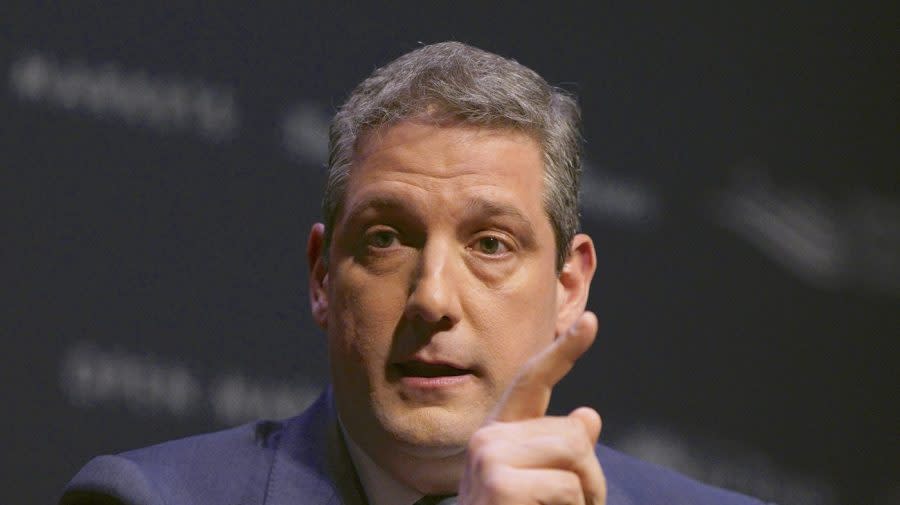Former Rep. Tim Ryan joins Landrieu at pro-natural gas group

- Oops!Something went wrong.Please try again later.
- Oops!Something went wrong.Please try again later.
- Oops!Something went wrong.Please try again later.
Former Rep. Tim Ryan (D-Ohio), who left his seat to run against now-Sen. J.D. Vance (R-Ohio) in 2022, will join the leadership council of Natural Allies for a Clean Energy Future, the D.C.-based natural gas trade group announced Thursday.
Ryan will join former Sen. Mary Landrieu (D-La.) and replace another former Democratic senator, Heidi Heitkamp of North Dakota, who left the organization to serve as director of the University of Chicago’s Institute of Politics.
“I am excited to join Natural Allies and promote the role natural gas plays in meeting global climate goals faster, while advancing reliability and affordability here at home,” Ryan said in a statement. “These are kitchen table issues voters understand — people’s livelihoods and jobs often depend on rational energy policy. As Democrats, we can be pro-climate, pro-affordability, and pro-natural gas.”
Landrieu, who joined the group in January 2022, said at the time her work would focus more on general promotion of natural gas rather than lobbying for specific legislation.
During the 2022 Senate race, both Ryan and Vance touted their support for fracking, with Ryan defending the Inflation Reduction Act as “going all-in on natural gas.” Vance, who defeated Ryan by about 6 points, criticized Ryan as having backed fracking bans during his 2020 presidential campaign. In 2019, Ryan said during a public forum that as president he would consider a ban on the practice on federal lands. In 2018, he co-sponsored ultimately unsuccessful legislation that would have required public disclosure of the chemicals in fracking fluids.
Proponents of fracking have called it a useful bridge for the transition from fossil fuels to renewables, while environmentalists have warned that it can contaminate groundwater and air as well as increase the risk of gas explosions. While fracking results in fewer greenhouse gas emissions than oil and gas, natural gas still contributes by releasing emissions when burned. In January, Ohio Gov. Mike DeWine (R) signed a bill defining natural gas as green energy.
For the latest news, weather, sports, and streaming video, head to The Hill.

